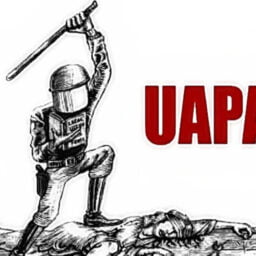Introduction
Following the Taliban’s capture of Kabul on August 15, hundreds of Afghans rushed to Hamid Karzai International Airport in an attempt to flee the Islamic militant group’s oncoming rule. The gross human rights violation in the state of Afghanistan and the breakdown of the Taliban against religious minorities again brings back into light the lack of any uniform refugee policy in India. India is home to 2.44 lakh refugees and asylum seekers, which makes it the 23rd country with the highest refugee population in the world. India’s porous land borders and relatively stable democracy make it a seemingly favourable destination for people facing oppression in their home countries.
However, India is not a signatory to the 1951 UN Refugee Convention and 1967 Protocol Relating to the Status of Refugees. Further, the lack of uniform refugee laws in the country makes the process of refugee protection highly discretionary, mostly influenced by political ideologies, religion, and international relations rather than humanitarian grounds.
Current Legal Regime
While discussing the status of ‘refugees’ in India, it is important to clearly define an ‘Asylum Seeker’. “An asylum-seeker is a person who has left their country and is seeking protection from persecution and serious human rights violations in another country, but who hasn’t yet been legally recognized as a refugee and is waiting to receive a decision on their asylum claim, as per the UNHCR.”
Article 14 of the Universal Declaration of Human Rights specifies that everyone has the right to seek and enjoy asylum in other countries. But there is no obligation on state parties to compulsorily render to such demands. Thus, asylum seekers have a right to seek asylum but not to be granted according to international law and international conventions.
A majority of the Afghan nationals currently residing in India have not been accorded refugee status. They are protected under the UNHCR mandate and are given valid residence permits which afford them some degree of legal protection, thereby permitting them to stay in the country even without valid passports.
International Laws and Obligations Regulating Refugee Situation in India
Although not a part of the 1951 refugee convention, India’s vantage point towards its refugees is governed to a reasonable extent by other conventions that India is a part of. As a member of the United Nations for High Commissioner for Refugees’ executive committee India’s policies are subject to a degree of moral obligation to build a constructive partnership with UNHCR. UNHCR office, based in New Delhi, conducts refugee status determination (RSD) for asylum-seekers from non-neighbouring countries and Myanmar due to absence of any national legal and administrative framework to identify them on the basis of set criteria.
The International Covenant on Civil and Political Rights (ICCPR), also applies to refugees. General comment 15 and general comment 20 of the Human Rights Committee deal specifically with the position of non-nationals. The mentioned provisions ensure that the rights of the covenant are available to all individuals irrespective of their nationalities or statelessness.
It is claimed that despite its repeated reluctance to sign the 1951 Convention Relating to the Status of Refugees, India is not exempt from the ‘jus cogens’ provisions. This customary international law forbids a country, “to deport, expel or forcefully return the refugee to his home territory contrary to his will or if there exists a reasonable threat to his life, liberty, and freedom.”[1] Additionally, Article 3 of the United Nations Convention against torture prohibits any state party to return a person when “there are substantial grounds for believing that he would be in danger of being subjected to torture.”
The international instruments’ non-discrimination provisions may be useful in guiding countries like India while taking policy decision in this regard. For instance the Universal Declaration of Human Rights and the International Covenant on Economic, Social, and Political Rights, both refer to the rights of “everyone,” not just citizens or countries:
Article 2(2) of UNHR reads as:
“The States Parties to the present Covenant undertake to guarantee that the rights enunciated in the present Covenant will be exercised without discrimination of any kind as to race, colour, sex, language, religion, political or other opinion, national or social origin property, birth or other status”
Further, Article 6 of the International Convention on Economic Social and Cultural Rights recognises that everyone has the right to work. The Covenant also protects workers’ rights, such as the right to equitable and advantageous working conditions, fair salaries and equal remuneration for equal work, safe and healthy working conditions, rest, and recreation. However, like all other rights protected by the International Convention on Economic, Social, and Cultural Rights, the right to labour under Articles 6 and 7 merely needs ‘progressive realisation’ rather than full and immediate execution.
National Legal Regime and The Refugee Situation
Article 21, i.e., Right to Life and Personal Liberty, applies to both foreigners and citizens. Thus, the Constitution guarantees various rights to non-citizens, including Articles 5 to 12, Articles 20 to 22, Articles 25 to 28, and the remedial provisions of Articles 32 and 226, all of which are available to refugees.
However, none of India’s domestic legislations directly refer to the refugees. Nothing in these provisions provides a distinction between a “foreigner” and “refugee”. Section 2(a) of The Foreigners Act, 1946 defines a “foreigner” as “a person who is not a citizen of India”. It is the sole law applicable to refugees and does not differentiate between foreigners and refugees.
It gives the government unrestricted authority to detain and arrest any foreigner on the suspicion of breaking the Act. The Government of India has broad elective rights to limit foreigners’ admission and movement inside the country, according to Section 3(2) of the Act. The Act also gives the government the power to deport immigrants. This means that refugees who fall under the jurisdiction of foreigners can be deported, which is against international customary law.
In the absence of any ‘refugee specific’ statutory provisions, the Indian courts have developed the legal regime on a de facto basis.
In the case of Hans Muller of Nuremberg v. Presidency Jail, the Supreme Court opined the following:
“The Foreigners Act confers the power to expel foreigners from India. It vests the central government with absolute and unfettered discretion and, as there is no provision fettering this discretion in the Constitution, an unrestricted right to expel remains.”
Whereas in contrast, In the National Human Rights Commission v. State of Arunachal Pradesh, the Supreme Court of India ordered the government to protect the lives and wellbeing of Chakmas who had fled persecution in Bangladesh. The Chakmas’ right to life and personal liberty meant that they could not be sent back to their homeland (the theory of non-refoulment). This decision, along with Louis De Raedt v. Union of India, established that the protection of Art. 21 of the Constitution extended to all, including aliens, and that the state is obligated to safeguard the life and liberty of every human being under its jurisdiction. The refugee has the right to life and personal liberty.
Conclusion
India is home to a diverse group of refugees that are not governed under a uniform refugee policy. Currently, the Foreigner Regional Registration Offices (FRRO) deal with refugees on an ad hoc basis, creating a de facto refugee regime in India.
For e.g., Refugees belonging to some groups have been granted Aadhar and PAN cards, have been ensured employment, and even allotted lands. While certain other groups, remain crowded in deplorable camps, reliant on the UN’s goodwill or the generosity of non-governmental organizations. Hence, it is evident some refugees are welcome more than others.
There are several laws that restrict the entry and status of refugees in India, a majority of which have been determined to be superfluous and oppressive. These rules are based on immigration laws, and no special legislation relating to refugees has been included. This creates a lacuna that has to be filled by the judiciary on a case-by-case basis, leaving room for injustice.
Author(s) Name: Aditi Rathore (Nirma University, Ahmedabad)
[1] The Refugee Convention 1951, Article 33.
















